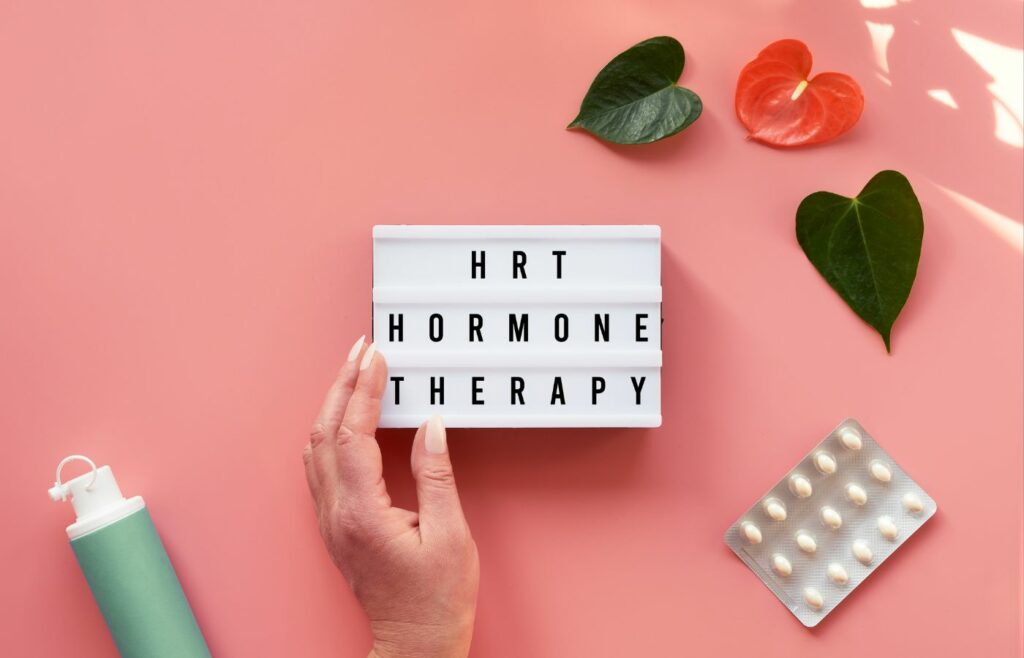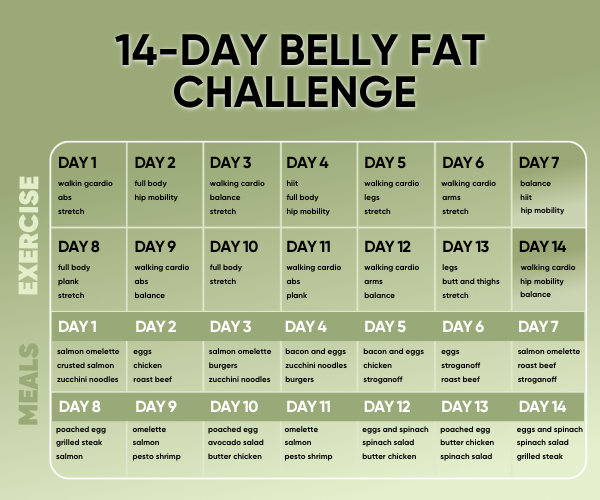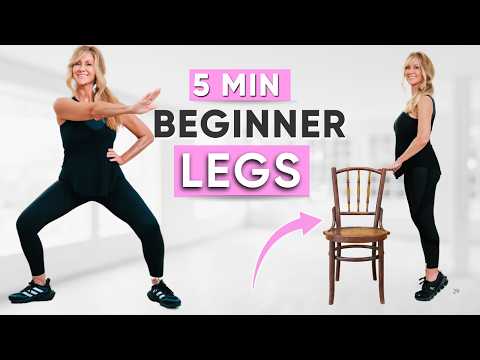
Hormone Replacement Therapy, or HRT, is a medical treatment for women over 50 that aims to ease the symptoms of hormonal imbalance.
When you hit menopause, your body goes through some big changes in hormones. This can bring on all sorts of uncomfortable stuff like hot flashes, night sweats, mood swings, and even weaker bones. But don’t worry; that’s where HRT comes in.
HRT is a treatment that can help ease those symptoms by giving your body the hormones it needs but isn’t making enough of anymore. It comes in different forms, like pills, patches, creams, or rings, and it might just make you feel a whole lot better.
So, if you’re struggling with menopause symptoms, HRT could be something to consider. It’s all about finding what works best for you and your body. Just remember, you’re not alone in this journey, and there are options out there to help you feel your best.
Let’s take a look at things you need to know about HRT for women over 50.
Key Takeaways: What Is HRT for Women Over 50?
- Hormone Replacement Therapy (HRT) uses estrogen, with or without progesterone, to replace hormones that drop during menopause.
- It is the most effective treatment for hot flashes, night sweats, and vaginal dryness and also helps prevent bone loss and fractures.
- For most healthy women under 60 or within 10 years of menopause, the benefits of HRT usually outweigh the risks when the dose and type are chosen carefully.
- HRT is not one-size-fits-all, risks depend on age, health history, type of hormone, dose, and how it is taken (tablet, patch, gel, ring, or cream).
- There are non-hormonal options (medications and lifestyle tools) that can help if HRT is not suitable or you choose not to use it.
- You should always talk with a qualified healthcare professional before starting, changing, or stopping HRT.
What Is Hormone Replacement Therapy (HRT)?
During perimenopause and menopause, your ovaries gradually produce less estrogen and progesterone. As these hormones fall, you can experience symptoms like hot flashes, night sweats, sleep problems, mood changes, vaginal dryness, and brain fog.
Hormone Replacement Therapy (also called Menopausal Hormone Therapy, or MHT) uses medicines that contain estrogen, and often a form of progesterone, to replace some of what your body no longer makes. The goal is simple: reduce symptoms and protect long-term health, especially your bones.
HRT can be given as:
- Tablets
- Skin patches
- Gels or sprays
- Vaginal creams, pessaries, or rings
Your doctor chooses the type and dose based on your symptoms, medical history, and preferences.
Which Hormones Are Used in HRT?

The two main hormones in HRT are:
- Estrogen: The primary hormone used to treat hot flashes, night sweats, vaginal dryness, and bone loss.
- Progestogen (progesterone or similar): This hormone protects the lining of your womb (endometrium) if you still have a uterus.
If you have had a hysterectomy, you usually only need estrogen. If you still have your uterus, you generally need a combination of estrogen and progestogen to lower the risk of endometrial cancer.
These hormones can be:
- Taken orally as tablets
- Absorbed through the skin using patches, gels, or sprays
- Used locally in the vagina to target dryness and urogenital symptoms
The right combination is highly individual, which is why a personalised plan with your doctor is so important.
READ ALSO: Signs You Have a Hormonal Imbalance and How To Treat It
Why Do Women Over 50 Consider HRT?
For many women, HRT can be life-changing because it targets both symptoms and some long-term health risks.
Symptom Relief
HRT is recognised as the most effective treatment for:
- Hot flashes and night sweats
- Sleep disturbance caused by vasomotor symptoms
- Vaginal dryness, discomfort, and painful sex
- Genitourinary syndrome of menopause (urinary and vaginal symptoms)
It can also help with:
- Mood swings and irritability related to hormonal changes
- Brain fog and difficulty concentrating for some women
Bone Health and Fracture Risk
Falling estrogen accelerates bone loss after menopause. HRT helps maintain bone density and reduce fracture risk, especially for women at moderate to high risk of osteoporosis who cannot tolerate or have not responded to other treatments.
Possible Heart and Brain Benefits (With Caution)
For a subset of women who start HRT before age 60 or within 10 years of menopause, some studies suggest it may have neutral or even slightly favourable effects on heart health and possibly cognitive function, although this is still being studied. HRT should not be used purely to prevent heart disease or dementia, but these potential benefits may be part of the discussion.
READ ALSO: What Really Happens to My Estrogen and Hormones During Menopause?
What Are the Risks and Side Effects of HRT?

Every medication carries some risk, and HRT is no different. Understanding these risks helps you weigh them against the benefits.
Short-Term Side Effects
Common early side effects can include:
- Breast tenderness
- Bloating or fluid retention
- Headaches
- Nausea or mild stomach upset
- Breakthrough bleeding or spotting
These usually improve after the first few months or after dose adjustment.
Long-Term Risks
Long-term risk depends on:
- Age when you start
- Time since menopause
- Type and dose of hormone
- Route (tablet vs patch/gel)
- Personal and family health history
Key points from current evidence:
- Blood clots and stroke:
- Oral estrogen is associated with a higher risk of blood clots and a small increase in stroke risk, especially in older women.
- Patches, gels, and sprays appear to carry a lower risk for clots and stroke.
- Breast cancer:
- Combined estrogen–progestogen therapy is linked to a small, increased risk of breast cancer with long-term use.
- Estrogen-only therapy (for women without a uterus) has a different risk profile and may have a lower or neutral effect on breast cancer risk in some studies.
- Heart disease:
- Starting HRT at 60 or older, or more than 10 years after menopause, is linked with higher risks of heart disease and stroke.
- Starting younger and closer to menopause is generally safer and sometimes beneficial.
Recent decisions by regulators (including the removal of a long-standing “black box” warning on some HRT products in the US) reflect updated evidence that HRT is safer than once thought when used appropriately, but still not risk-free.
This is why an individual risk assessment with your doctor is essential.
Important: HRT is not suitable for everyone, including some women with a history of breast cancer, blood clots, stroke, or certain heart conditions. Always seek personalised medical advice.
What Types of HRT Are Available?

Different types of HRT allow your doctor to tailor treatment to your symptoms, menstrual history, and health profile.
1. Cyclical or Sequential HRT
Used for women who are peri-menopausal (still having periods but with symptoms):
- Estrogen is taken continuously.
- Progestogen is added for part of the month, causing a regular withdrawal bleed.
This mimics a monthly cycle and can help manage symptoms while your own hormones are still fluctuating.
2. Continuous Combined HRT
Used mainly after menopause is established:
- Estrogen and progestogen are taken together every day.
- Aimed at giving symptom relief without monthly bleeding once your periods have stopped.
3. Estrogen-Only HRT
Recommended for women who have had a hysterectomy and therefore do not need progestogen for womb protection.
- Treats hot flashes, night sweats, bone loss, and vaginal symptoms.
- Has a different risk profile compared with combined HRT.
4. Local (Vaginal) Estrogen
For women whose main issue is vaginal dryness, irritation, painful sex, or recurrent urinary infections:
- Given as vaginal creams, pessaries, or rings.
- Delivers very low doses directly to the urogenital tissues.
- Has minimal absorption into the bloodstream and is generally considered very low risk for most women.
Your doctor will help you decide which type best matches your symptoms and health background.
Is HRT Right for Women Over 50?

HRT can be highly effective and safe for many women, but it is not automatically right for everyone.
Your doctor will consider:
- Your age and how long it has been since your last period
- The severity and impact of your symptoms
- Your risk of osteoporosis, heart disease, stroke, and breast cancer
- Any history of blood clots or liver disease
- Your personal preferences
For most healthy women under 60, within 10 years of their final period, the benefits of HRT usually outweigh the risks when used at the lowest effective dose for an appropriate duration.
How Do You Start HRT Safely?
Starting HRT is a shared decision between you and your healthcare provider. Here’s what usually happens:
- Detailed medical history, including family history of cancer, clots, stroke, and heart disease.
- Physical check-up often including blood pressure, weight, and breast and pelvic assessment as appropriate.
- Discussion of symptoms and goals, which symptoms bother you most, and what you hope HRT will change.
- Choice of preparation: Tablet, patch, gel, spray, vaginal product, or a combination, plus estrogen-only or combined.
- Start low, review often: Many doctors begin with a low dose and adjust based on your response and side effects.
You should always follow your doctor’s instructions on how and when to take your HRT, and attend regular reviews.
How Is HRT Monitored and Adjusted Over Time?

HRT is not a “set and forget” treatment. Your needs may change over time, so monitoring matters.
Expect:
- Follow-up appointments, often at 3 months after starting, then yearly if things are stable.
- Discussions about symptom relief, side effects, bleeding patterns, and any new health issues.
- Possible dose adjustments or switches between tablets and patches if needed.
- Continuing regular screening (such as breast screening and cervical screening where appropriate) according to national guidelines.
At each review, you and your doctor can reassess whether to stay on HRT, adjust the dose, or plan a gradual taper when the time is right.
What Are the Alternatives to HRT?
If HRT is not suitable for you or you simply prefer not to take hormones, there are other ways to manage menopause symptoms.
1. Lifestyle Changes
Simple but powerful steps can help:
- Regular physical activity (cardio plus strength training)
- A balanced diet rich in vegetables, fruits, whole grains, and healthy fats
- Limiting alcohol, caffeine, and very spicy food if they trigger hot flashes
- Stress management (breathing exercises, mindfulness, yoga, counselling)
- Good sleep habits and a calm bedtime routine
These changes support overall health and may reduce the intensity of symptoms, even if they do not remove them completely.
2. Non-Hormonal Medicines
Evidence-based non-hormonal treatments for hot flashes and night sweats include:
- Certain antidepressants (SSRIs and SNRIs)
- Gabapentin or pregabalin
- Other specialist options such as newer neurokinin-receptor antagonists in some countries
These are useful when hormones are not wanted or not safe, and they are usually prescribed and monitored by a doctor.
3. Complementary and Herbal Options
Some women try herbal remedies such as black cohosh or phytoestrogens for symptom relief. Research shows mixed results, with some studies suggesting modest benefit and others showing little difference from placebo. Safety data are also less robust than for regulated medicines, and quality can vary between products.
Always talk to your doctor or pharmacist before starting supplements, especially if you take other medicines or have underlying health conditions.
READ ALSO: Blackcurrants & Blueberries: Best Remedies For Menopausal Bone Loss
How Does This Fit With Your Overall Menopause Plan?
HRT is one tool in a much bigger picture that includes:
- Understanding your symptoms and triggers
- Supporting your heart, brain, and bones with daily habits
- Looking at nutrition, movement, stress, and sleep
- Using education and community support to stay informed and encouraged
If you want a deeper dive into how food, movement, and hormones work together, you can explore structured resources like a Menopause & Nutrition Weight Loss Bundle or similar programmes that focus on both symptom relief and long-term health for women over 50.
Closing Thoughts
Hormone Replacement Therapy (HRT) can be a game-changer for women over 50 dealing with menopausal symptoms. It’s been known to ease hot flashes, keep bones strong, and even lift your mood and cognitive function.
But before you start, it is very important to talk to your doctor. They will help you decide if HRT is right for you by comparing the pros and cons. They can also talk to you about other options if HRT is not right for you.
Remember that menopause is different for everyone, so what works for one person might not work for someone else. You can make the best choice for your health if you stay informed and work with your healthcare provider.
So, take charge of your menopause journey and start living a healthier, happier life.
Explore More
Learn more about managing menopause by exploring our wealth of resources tailored for women over 50. From informative articles to expert advice, there’s a wealth of knowledge waiting to empower you on your menopausal journey.
If you’re tired of battling the symptoms of menopause and longing for a comprehensive guide to navigate this transformative phase, look no further. Check out our Menopause & Nutrition Weight Loss Bundle, designed to provide you with a complete understanding of menopause and its effects on your body. You’ll also discover some valuable insights on the role of nutrition in managing menopausal symptoms.
It’s time to take control of your menopausal journey and embrace a healthier lifestyle.
FAQs: Hormone Replacement Therapy (HRT) for Women Over 50
HRT replaces some of the estrogen (and sometimes progesterone) that drops during menopause. This can ease hot flashes, night sweats, vaginal dryness, and sleep problems, and help protect bones from thinning.
For most healthy women in their 50s, especially if HRT is started within 10 years of menopause, the benefits outweigh the risks when the treatment is tailored to the individual and reviewed regularly.
There is no single time limit that suits everyone. Many guidelines suggest using the lowest effective dose for the shortest time needed, with a yearly review of risks and benefits. Some women need only a few years; others stay on longer under specialist guidance.
HRT itself is not a guaranteed cause of weight gain. Weight changes around menopause are usually driven by age, metabolism, activity levels, and diet. For some women, better sleep and symptom relief on HRT can make it easier to maintain a healthy lifestyle.
HRT is not licensed as a treatment to prevent heart disease or dementia. Starting HRT early after menopause may have neutral or favourable effects on heart health for some women, but it should not be used purely for disease prevention.
If HRT is not suitable, non-hormonal medications, lifestyle changes, and sometimes complementary approaches can still provide meaningful relief. A doctor or menopause specialist can help you build a plan based on your individual needs.
Most women do not need complicated hormone tests. Your doctor will usually base decisions on your symptoms, age, menstrual history, and overall health. In some cases, blood tests or other investigations may be used to check your general health or rule out other conditions.
Disclaimer: This article is for general information only and is not a substitute for personal medical advice, diagnosis, or treatment. Always speak with your doctor or another qualified health professional about your own symptoms, risks, and treatment options.
References:
- NCBI, NLM. Hormone Replacement Therapy. Gina Harper-Harrison; Meaghan M. Shanahan. Hormone Replacement Therapy. February 20, 2023.
- Medical News Today. Uses, types, and effects of HRT. Medically reviewed by Valinda Riggins Nwadike, MD, MPH — By Yvette Brazier — Updated on November 13, 2023
- Columbia University, Irving Medical Center. What You Should Know About Hormone Therapy and Menopause. February 8, 2023
This article was first published in March 5, 2024 and last updated on December 5, 2025.




















